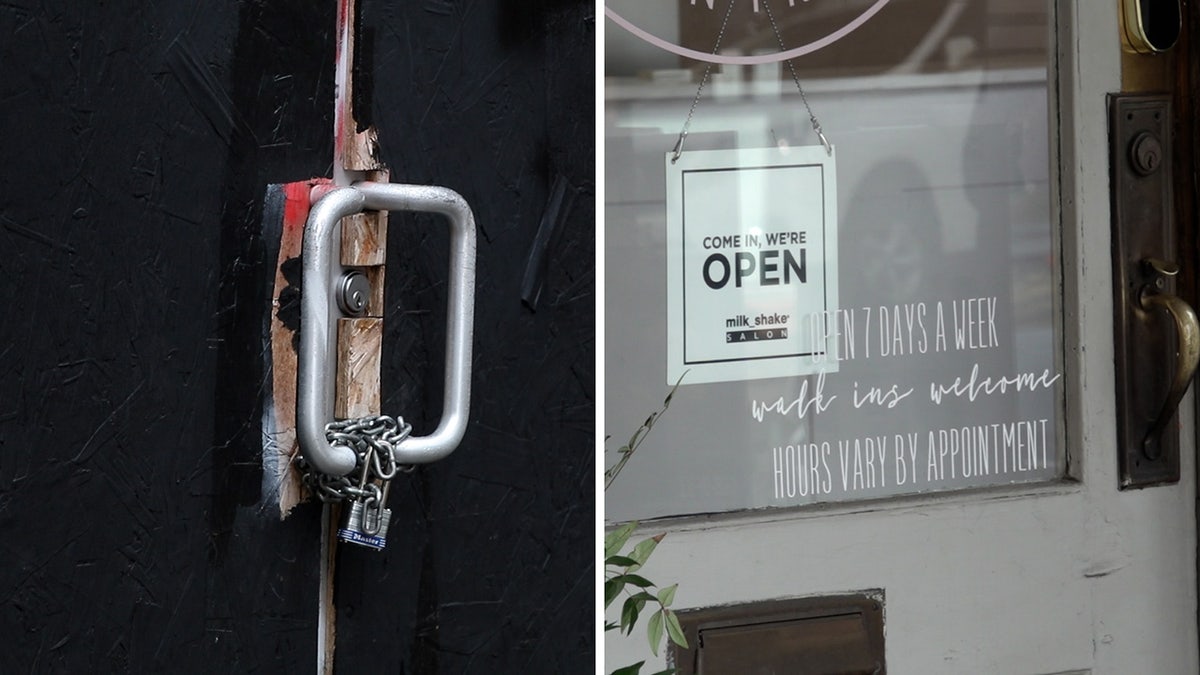Why is public safety collapsing in Portland?
Crime looks to be leveling off in Oregon’s three main counties, but it’s a different story within Portland city limits. Local leaders share their strategies for keeping crime and livability issues from spilling into their communities.
Oregon lawmakers are considering legislation aimed at curbing organized retail theft by funding police sting operations and changing policies to keep thieves in jail longer.
Police, grocery store representatives and retail lobbyists testified in a Senate Judiciary Committee hearing Wednesday in support of two bills that target organized retail theft. One bill would provide additional, targeted funding to the Oregon Department of Justice and law enforcement, while the other changes policies to make it easier to prosecute cross-county thefts and increase the maximum sentence for organized retail theft.
"We need to address the root cause of this issue by breaking the cycle of recidivism among repeat offenders and taking a new stance against organized crimes against retailers," a representative for Oregon-based Columbia Sportswear, Kevin Stone, wrote in testimony submitted to the committee. "It is time for new policies and funding to effectively address this problem and create a safer and more profitable retail environment in Oregon."
WHY IS PUBLIC SAFETY COLLAPSING IN PORTLAND?
WATCH MORE FOX NEWS DIGITAL ORIGINALS HERE
Senate Bill 340 includes policy changes to the state's criminal code, adding organized retail theft to the state’s repeat offender statute, which authorizes a judge to impose a 24-month prison sentence, compared to the existing 10- to 11-month sentence. It would allow suspects accused of property crimes in multiple jurisdictions to be tried in any county where an offense was committed.
"These policy solutions will ensure that retailers and law enforcement have the necessary tools to detect, deter and hold accountable those who commit organized retail theft and improve employee safety," an Oregon DOJ legislative director, Kimberly McCullough, wrote in her testimony to the committee.
The hearing also addressed Senate Bill 318, which would establish an organized retail theft grant program that puts $5 million into a fund for cities, counties and the state to pay law enforcement officers who work overtime on sting operations targeting retail theft rings. It would also provide funding for the DOJ to aid in combating organized retail crime.

Property crime, including vandalism and burglary, increased 11% in Portland in 2022. (Photos courtesy of Bison Coffee House, Portland Police Bureau, and Rains PDX)
"Much in the same way that grant funding has successfully impacted traffic safety around the use of seatbelts and driving under the influence of intoxicants, grant funding will impact the tide of organized retail crime in favor of safer communities," Clackamas County Detective Michael Zacher wrote to the committee in support of the bill.
In 2020, just under 25,000 larceny incidents were reported in Portland compared to over 27,000 in 2022, according to the Portland Police Bureau (PPB).
Walmart announced it would close its two remaining Portland locations on March 24 due to the stores not meeting "financial expectations." A few months prior, CEO Doug McMillon warned of potential closures and price increases if the rise in theft continued.
A December sting resulted in 64 arrests and recovered almost $9,000 in stolen merchandise, a local NBC affiliate reported. In February, 40 people were arrested and over $2,000 of merchandise was found in another operation.
But passing both bills still won't be enough, said Washington County District Attorney Kevin Barton.

At risk of vandalism or theft, businesses in downtown Portland take precautions and work with police to catch organized retail rings. (Hannah Ray Lambert/Fox News Digital)
CLICK HERE TO GET THE FOX NEWS APP
"What it is we need to have is law enforcement who's able to respond, prosecutors who are willing to prosecute. We need courts that are able to convict, and we need jails and prisons that are able to incarcerate. And all of those things need to be present. Sadly, they’re not all present everywhere in Oregon," Barton told a CBS affiliate.
Both bills are awaiting a Senate Judiciary Committee vote.














































